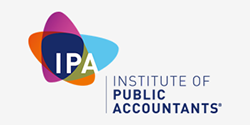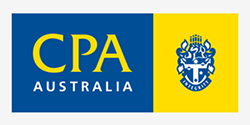Accounting Theory (SPA361)
Accounting Theory, a capstone accounting subject, critically evaluating a selection of fundamental financial and management accounting topics, as well as normative and positive theories.
Advanced Financial Accounting (SPA351)
Advanced Financial Accounting looks at accounting for business combinations and associations, foreign operations, financial instruments and company income tax.
Accounting information Systems (SPA232)
Accounting Information Systems looks at information systems design and development, internal controls, accounting software, database design, and e-commerce.
Advanced Management Accounting (SPA362)
Advanced Management Accounting explores organisational structures and management control systems, performance measurement and evaluation, as well as their behavioural implications.
Auditing and Assurance (SPA352)
Auditing and Assurance looks at the auditor’s duties, the audit process, audit evidence, audit opinion, auditing standards, as well as Forensic accounting.
Business Law (FDN121)
This subject provides an introduction to law from a business perspective and provides students with an introductory understanding of such areas as the structure and operation of the Australian legal system, tort law, the nature of different types of legal entities as well as the principles of commercial, contract, agency, consumer and competition law.
Business Statistics and Data Analysis (FDN123)
This subject provides students with skills essential for undertaking quantitative analysis and introduces students to how statistics are used in each functional area of business. Students learn how to locate, select, analyse and apply statistical tools to qualify and evaluate data as information for business decision-making.
Corporations law (SPA233)
Corporations Law is concerned with company formation, directors' duties, rights of shareholders and creditors, and insolvency.
Economics for Business (FDN113)
This subject introduces students to the fundamental concepts, models, theories and applications of microeconomics and macroeconomics. It offers an introductory treatment of market structures, supply and demand, consumer choice, inflation, interest rates and foreign exchange. Students investigate current macroeconomic events, policy issues and debates from the perspective of Australian business. The subject material also develops students’ analytical, communication and ethical thinking skills.
Finance Fundamentals (FDN112)
The subject develops an understanding of the core principles of finance and their application in financial decision-making. Topics include important financial concepts, Australia’s financial institutions and the nature of financial statements, financial planning, financial markets, capital budgeting decisions and financing decisions.
Financial Accounting (SPA242)
Financial Accounting is about the accounting profession and regulation, accounting standards – conceptual foundations and their practical applications.
Financial Management (SPA241)
Financial Management is concerned with investment valuation, risk and return, portfolio theory, capital budgeting, as well as capital structure and policy.
Management Accounting (SPA231)
Management Accounting explores product and service costing, product pricing, budgeting and variance analysis as well as decision support systems for management.
Management and Organisations (FDN124)
In this subject students critically explore management theories and apply them to practical contemporary situations. Students’ understanding of the nature of organisations and the role of managers is developed. The implications of internal organisational factors and external forces for effective management are examined. The subject material also develops students’ analytical, communication and ethical thinking skills.
Principles of Accounting 1A (FDN111)
This is a foundation subject for all Accountants. Students will understand how to translate the financial operations of a business into a process. The process or accounting system will require the students to demonstrate how to create and maintain a double entry accounting system and prepare meaningful financial statements. This will be demonstrated with the use of technical rules, definitions and generally accepted accounting principles. There is also a focus on financial information, who are the users and the role of information in decision making.
Principles of Accounting 1B (FDN122)
This subject continues on from Principles of Accounting 1A. Students will be able to demonstrate a more complex understanding of the accounting process. There is a more specific focus on inventory management using both perpetual and periodic methods. Other non-current assets will be interpreted and analysed, to ensure they meet current reporting requirements. Students will then be required to use financial information to prepared budgets and demonstrate basic cost volume profit analysis (CVP).
Principles of Marketing(FDN114)
This subject covers the basic principles and key concepts of marketing including market segmentation, target marketing strategies, brand development and marketing communications. It develops an understanding of the practical aspects of marketing and of the overall process of planning, implementation and control in the contemporary business context. This subject also develops an understanding of the marketing mix including pricing, product life cycle, distribution channels and promotion strategies.
Taxation Law and Practice (SPA353)
Taxation Law and Practice explores income tax, goods and services tax, capital gains tax, and fringe benefits tax.
Ethics and Business (MAN231)
In this subject students critically explore management theories and apply them to practical contemporary situations. Students’ understanding of the nature of organisations and the role of managers is developed. The implications of internal organisational factors and external forces for effective management are examined.




